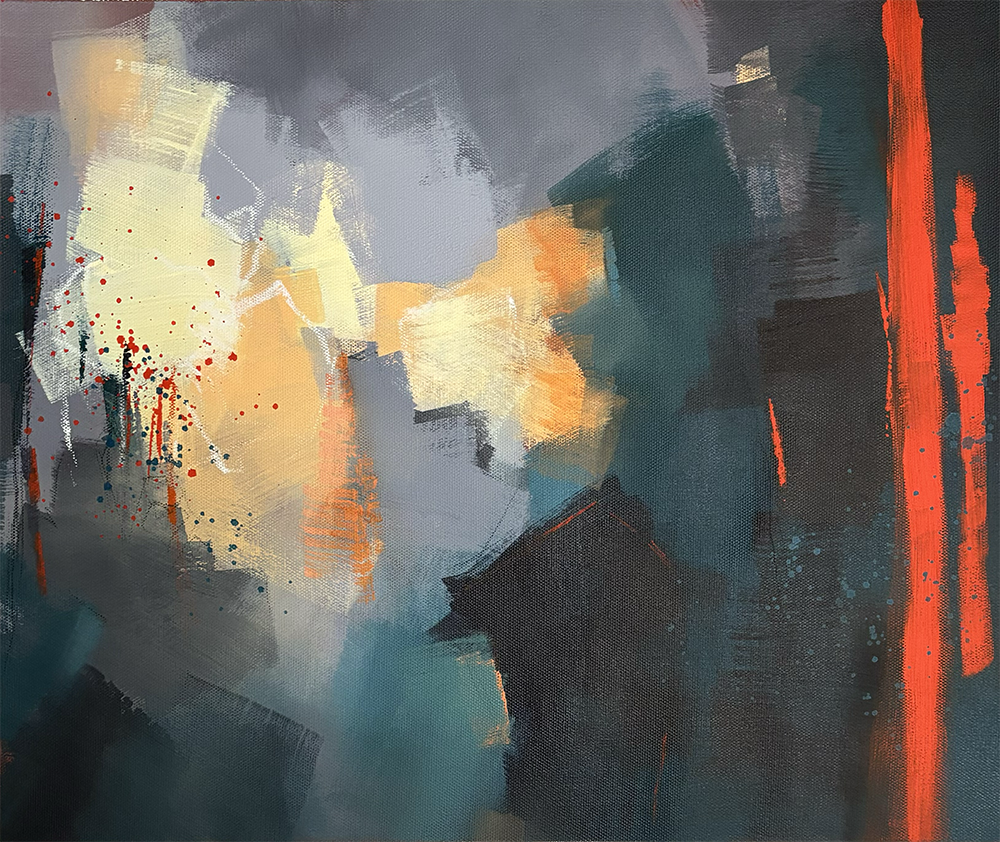The Anti-Art Class is a series of posts meant to discuss the topics that I see frequently from artists searching for guidance, but in the form of workshops and classes that aren’t really going to give them the answers they’re looking for. While I think workshops and classes are good for learning techniques, often I see artists asking for deeper guidance, or being fearful of taking steps on their own without the structure and safety of workshops and classes. This series is an exploration of those feelings.
Don’t ask people for opinions on your work. And especially never ask for the most general kind of opinion:
What do you think?
You are the artist. Someone else’s opinion is of no value to you. The question “what do you think?” lacks the specificity you need if you’re looking to grow and learn in your art, and questions that lack specificity are a waste of your time and a waste of the time of the person you’re asking.
Know that this is different than putting your work out there and being open to reactions, opinions, and comments on it. Many artists make their work because they’re compelled to put it in front of other people and know that there are others looking at it, feeling something, maybe even feeling what the artists felt while making it. Artists are human, and most of them want to know that someone looked at what they made and felt something.
But this is being open to your work touching others without seeking validation on it. You can actively seek someone’s opinion if you value it, but you should instead seek their input on whether you achieved the goals you set out to accomplish with the work you’re putting in front of them.
Were you trying to create a dynamic, fresh composition in your work? Then ask, “is my composition interesting? Does it feel new and fresh or old and traditional?”
Were you using a new palette that you’ve never used before? Then ask, “do my colors seem to work together? Do I have good use of complimentary color?”
Were you looking to provoke a certain emotional reaction from this work? Then ask, “how does this piece make you feel inside? What’s the first emotion you experience when you look at it?”
You might respond to this with, but the people I’m asking wouldn’t know those answers. Then you should definitely not be asking those people those questions, and you should seek out people who cangive you those answers if you truly have the desire to grow as an artist.
If instead you’re asking the generic question what do you think? Because you just want to hear praise about your work…that’s fine. But be prepared for the answers you get, answers that may come from people who feel ill-equipped to comment on art and thus will give you fluff, empty responses that will leave you questioning their sincerity. Or, usually more certain to disappoint, they frown and tell you they don’t understand it, or they don’t know why you put this over here and not that over there. (Lesson 3 is all about why you should never as a partner for feedback on your art.)
If you asked someone what do you think? And you got a response that let you down instead of lifting you up, then go back into your studio. Maybe make a cup of tea. Sit down in front of whatever work you have in progress (because I certainly hope you always have work in progress). Then have a think about whether you may have played a role in getting the feedback you got by choosing the wrong question and asking the wrong person. And then pick up your tools and keep going.
If you don’t know what to ask because you didn’t have a specific goal to ask about, then the first person you need to seek input from is yourself.
Ask yourself first: why did I make this? What did I want to get out of this? Am I compelled to make this but I don’t yet know why? The answers to those questions will lead to the questions you should be asking others.
But what if you ask yourself those questions and you don’t have the answers? What if you don’t know why you’re making this, or what you want to get out of it? This is a perfectly legitimate response. It’s okay not to know. It’s okay to be guided in your work by something you can’t name yet, to feel compelled to make something without knowing why you feel compelled to make it yet, and to feel like the act of making it is what’s going to give you that answer.
But this is a cue to stop and reflect before you ask other people to answer questions before you yourself have any answers about what you’re doing. Learn from yourself first, and then ask questions of others.
And if the answer to the question of, why am I making this? Is that it’s all about what you get out of it, then the result is clear: it’s not necessary to ask anyone else for their opinion on it. Because it’s your work, and your opinion is the only one that matters.





My perspective on creativity as a writer:
“I don’t care what you think about my work. However, if you're an expert and genuinely interested, I welcome insights on why you think it succeeds. I am under no obligation to take your advice, but meaningful, well-considered suggestions can help me refine my craft.”
I spent decades fighting for my craft and don't plan to allow someone who has not sacrificed, has not studied, and has not become invested in my creative journey to derail it with careless, specious commentary.